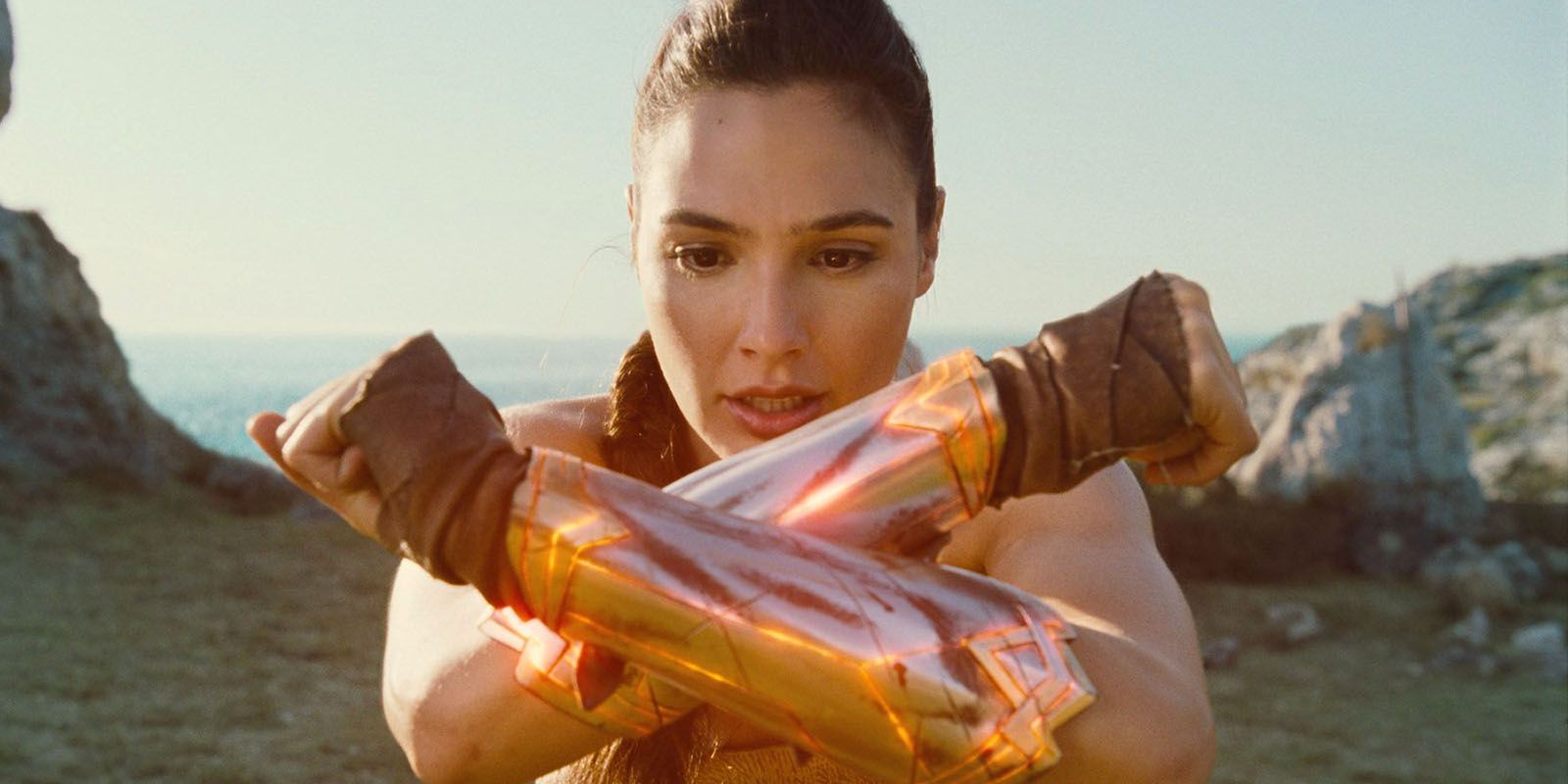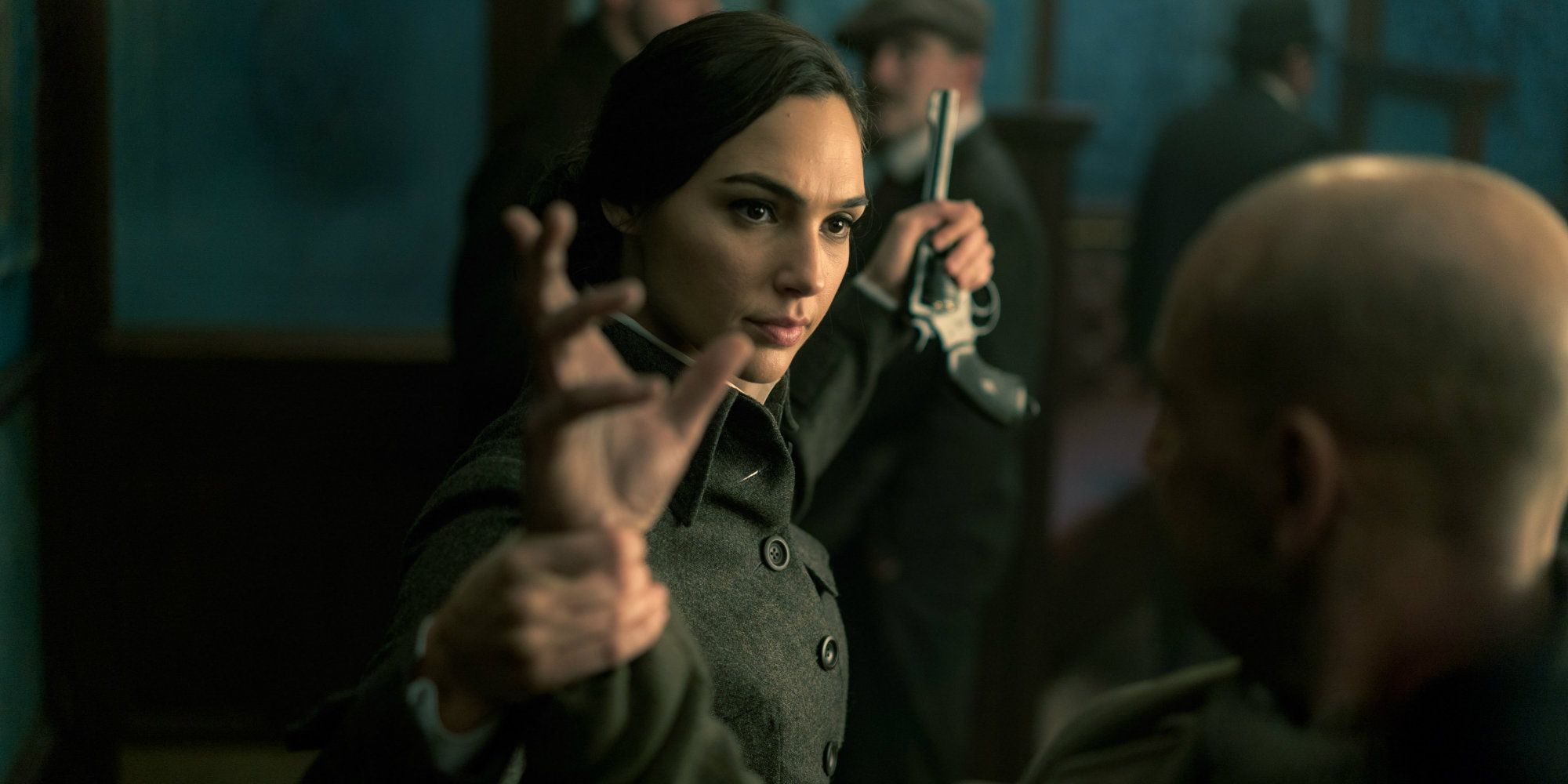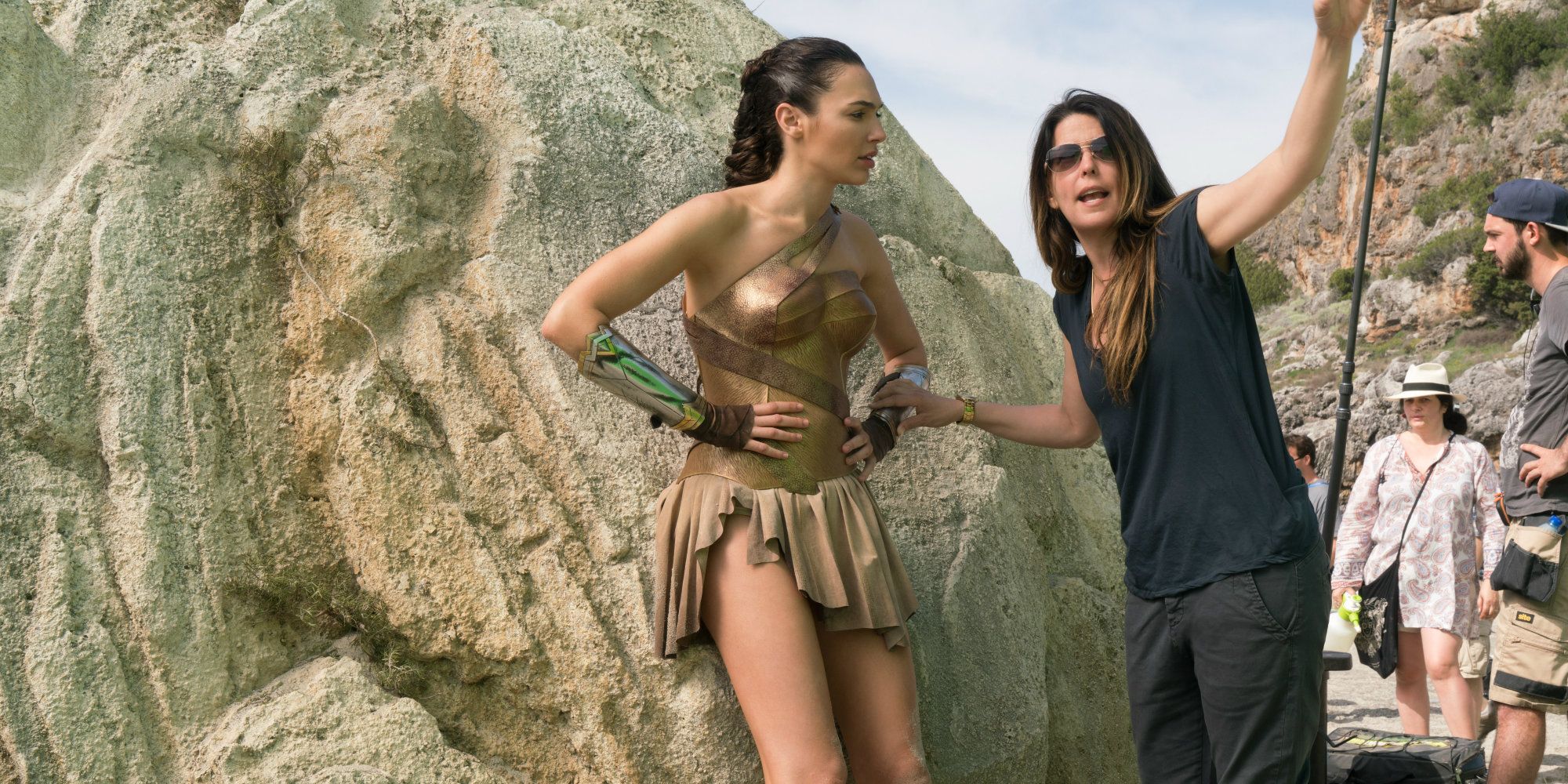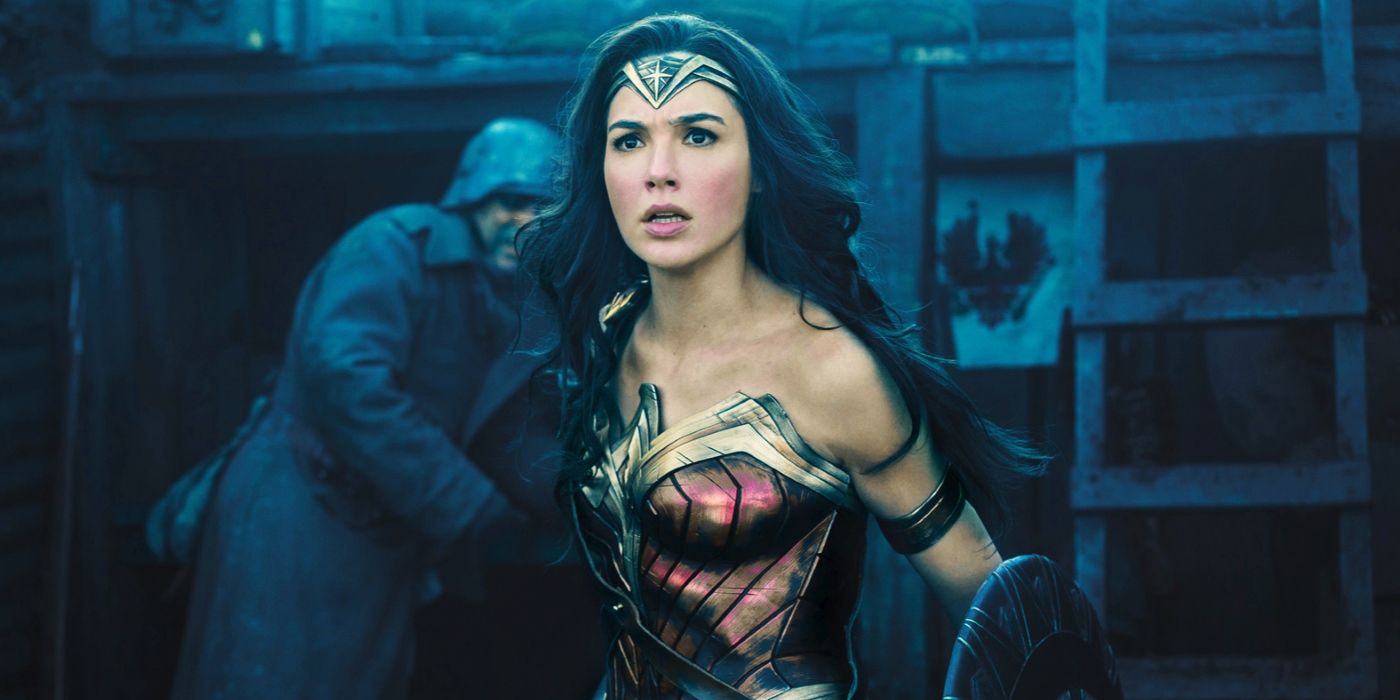Without a doubt, the most talked-about film of 2017 so far is Wonder Woman. It’s a huge hit, already earning over $300 million at the domestic box office, placing it third (so far) among the year’s releases. The DCEU release is currently 17th all time at the box office for superhero movies, and stands an excellent shot of cracking the top ten. And positive word of mouth has caused Wonder Woman to maintain momentum from week to week.
The first major solo movie for the nearly 75-year-old character, Wonder Woman has also earned positive reception from critics. It currently stands at 93% positive on Rotten Tomatoes, based on 300 reviews. In a summer in which a lot of high-profile movie releases have been disappointments, Wonder Woman is one that has both met and succeeded expectations. It’s also made an international superstar out of Gal Gadot, who plays the title character.
Yet, even though Wonder Woman should be considered a success in just about every aspect, it’s actually been the subject of numerous controversies, involving everything from gender, to the Marvel/DC wars and other aspects of fanboy culture, to even the Arab-Israeli conflict. For a film that the vast majority of people liked, Wonder Woman has been the subject of some of this summer’s angriest arguments.
Let’s look at them, one by one:
Wonder Woman and Marvel vs. DC
In recent years, as Marvel and DC have both rolled out multi-film cinematic universes, a lot of fans have seen it fit to take sides, in the way they might support a favorite sports team. And among those who favor DC, a narrative has emerged that, due to the Marvel movies generally receiving more positive reviews and laudatory coverage, that there’s some sort of “media bias” at work to make that possible. There’s even a secondary conspiracy theory at work that Marvel and Disney are in fact bribing critics in exchange for positive coverage.
This argument has always been somewhat silly (and often more tongue-in-cheek than serious). Film critics generally don't harbor any type of built-in bias by movie studio or comic book publisher. In fact, neither do most moviegoers in general, who in most cases are rooting for a film to be good, regardless of who made it. And of course, reviews of Marvel movies are far from universally positive every time.
Wonder Woman has served to blow up that whole narrative. Those Disney checks must not have arrived in critics’ mailboxes in time, because Wonder Woman’s RT score is higher than that of every MCU movie save for the first Iron Man. And the Hollywood press has lauded just about every aspect of the Wonder Woman production, including lots of trend stories about how DC has turned a corner.
Is the MCU vs. DCEU battle over? Not even close. But perhaps having a widely-acclaimed movie on the DC side will take some of the heat out of it.
Wonder Woman and gender
Of course, if there’s any subject more contentious than Wonder Woman’s place in the DC/Marvel wars, it’s feminism. And the role of feminism in the Wonder Woman phenomenon has been the subject of more thinkpieces this summer than perhaps anything else. Wonder Woman is the most famous female superhero of all time, and the new film was directed by a woman, Patty Jenkins (Game of Thrones director Michelle MacLaren was also at one point set to direct). Wonder Woman is a character who means a great deal to a whole lot of women, young and old, and has for decades.
So naturally, we’ve had controversies in recent months over everything from the appearance of Gal Gadot’s armpits to a bogus story about Gadot’s salary being much lower than that of Superman actor Henry Cavill, to Alamo Drafthouse’s all-female screenings of Wonder Woman.
Throughout, so much has been written. Here is a sampling of feminist-related headlines related to Wonder Woman in the last month:
- 5 wonderfully feminist moments in ‘Wonder Woman’ (USA Today, June 2)
- Why Wonder Woman is a masterpiece of subversive feminism (The Guardian, June 5)
- I Wish Wonder Woman Were as Feminist as It Thinks It Is (Slate, June 2)
- ‘Wonder Woman’ Is the Feminist Hero We’ve Been Waiting For (The Daily Beast, June 2)
- Wonder Woman, feminist icon or bodacious fantasy figure? (CNN, June 2)
- Why Wonder Woman isn’t the feminist fantasy we’ve been told it is (Metro, June 24)
- Why Feminists Can’t Enjoy Wonder Woman (Spiked Online, June 16)
- ‘Wonder Woman’ is a beautiful reminder of what feminism has to offer women — and men (Washington Post, June 5)
- Wonder Woman is Your Zionist, White Feminist Hero (Wear Your Voice Magazine, June 2)
Female-led blockbusters in general (and female superhero movies specifically) are still rare enough that they'll inevitably attract a hubbub of conversation among feminist writers, and the above sampling demonstrates just how much even a straightforward "female empowerment" movie can divide opinion among people who are ostensibly on the same "side." This is by no means a bad thing; in fact, it's a testament to how much the movie has inspired strong reactions and healthy discussion. What’s the feminist position on Wonder Woman? It turns out, there are quite a few of them.
Wonder Woman and Israel
Gal Gadot was born and raised in Israel. She was crowned Miss Israel in 2004 and went on to serve in the Israel Defense Forces (IDF) as a combat trainer, prior to pursuing careers in modeling and acting. Gadot’s husband is Israeli, she still spends much of her time there, and she has from time to time expressed support for her country at the time of various military conflicts.
As the Wonder Woman movie has spread in popularity, Gadot’s Israeli roots have been cause of immense pride for other Israeli citizens, as well as for Jewish-Americans proud that a “member of the tribe” is playing such a classical American icon. At the same time, an Israeli Wonder Woman has drawn the ire of those more critical of Israel, especially the BDS (Boycott, Divest, Sanctions) movement and various foreign countries that are adversarial towards the Jewish state. Showings of Wonder Woman were in fact banned in Lebanon and “suspended” by a court in Tunisia.
It’s important to note, however, that there was no attempt to arrange a boycott of Wonder Woman in the United States, and while a few op-ed pieces here and there were written scolding Gadot for her Zionism, it’s unlikely they made much of a dent in the film’s success. It’s also worth noting that are a lot of countries throughout the world that have conflicts with Israel, but only two of them made any effort to ban the film.
Lessons From the Wonder Woman Wars
So, what are some lessons that we can glean from the various Wonder Woman controversies? There are several:
- A good movie is a good movie, regardless of which studio produced it and which comic book label it’s derived from.
- A nutty cultural hot take is sometimes exactly that, and certainly shouldn’t be adopted as the wholesale position of “the left” or “feminists”
- You shouldn’t judge a movie by its star’s country of origin.
- Whether it’s about movie star salaries or the existence of a “feminist Hollywood boycott,” don’t always believe the first version of every news story.
- If someone calls a person or a movie “problematic,” all it means is that the author feels that way. That author has no way of ruining the movie for you or anyone else.
- Despite all of the above noise, the vast majority of people who saw Wonder Woman liked it and reacted positively to it.




